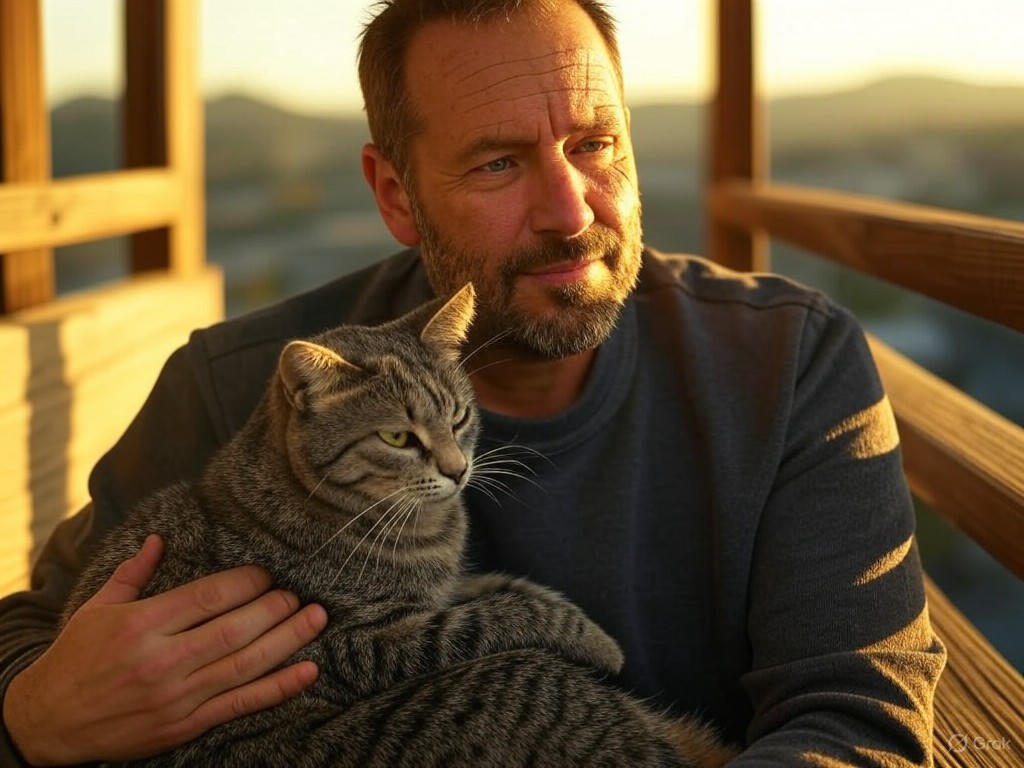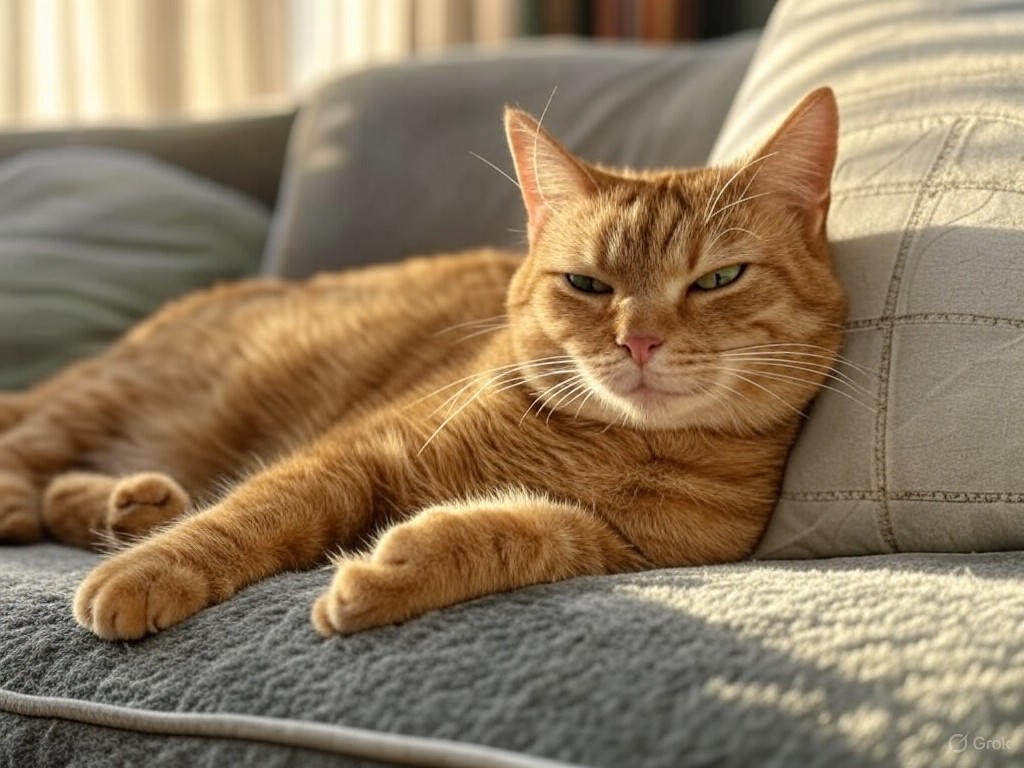Oliver’s Cat Norman: A Hollywood Pet Legacy
In an era where Hollywood glitz often overshadows genuine human experiences, actor Oliver’s recent tribute to his cat Norman stands as a quiet testament to life’s simple, enduring connections. Oliver, known for his rugged roles in films like The Edge of Dawn, shared a moving Instagram post about Norman, his faithful feline companion of 15 years. This isn’t just celebrity fluff; it’s a reminder of the emotional bonds that ground us in an increasingly transient world. As we delve into this story, we’ll explore how such personal stories resonate with Hollywood’s pet-loving audience, while examining the broader implications for society, the free-market pet industry, and traditional values that prioritize personal responsibility over government meddling.
Oliver’s narrative—filled with tales of late-night purrs and unwavering loyalty—strikes a chord because it echoes a universal truth: pets offer a sense of stability in chaotic lives. In Hollywood, where careers rise and fall like tides, animals like Norman represent something steadfast. This emotional bond, as Oliver described it, isn’t about fleeting trends or public posturing; it’s about the quiet dignity of companionship that harks back to traditional family structures. Yet, this phenomenon raises questions about how the pet industry has evolved into a multibillion-dollar market, driven by individual choices rather than regulatory overreach. From custom pet food to luxury accessories, the free market has responded to consumer demands without needing bureaucratic intervention, allowing everyday people and celebrities alike to foster these bonds on their own terms.
The Analysis: Pets as Pillars of Personal Stability
At its core, Oliver’s tribute to Norman highlights the irreplaceable role pets play in emotional well-being, a theme that permeates Hollywood culture. Celebrities like Oliver aren’t alone; stars such as Ryan Reynolds and Blake Lively have similarly shared stories of their dogs, turning social media into a space for authentic, unscripted moments. This trend underscores a center-right value: the importance of personal relationships and self-reliance in building resilience, rather than relying on expansive social programs. In a society that often prioritizes career over community, pets serve as a counterbalance, offering loyalty without strings attached—a nod to traditional values where family, in its broadest sense, forms the bedrock of stability.
However, this pet-loving culture isn’t without its economic undercurrents. The pet industry, now a $100 billion sector in the U.S., thrives on innovation and competition, exemplifying free-market principles at their finest. Companies respond to consumer preferences, from organic cat food to app-based veterinary services, without the heavy hand of government mandates slowing progress. Oliver’s emotional bond with Norman, for instance, might inspire fans to invest in better pet care, fueling market growth driven by individual initiative. Yet, as this industry expands, it’s crucial to resist calls for excessive regulation, such as blanket animal welfare laws that could stifle small businesses. A balanced approach favors voluntary standards and market-driven solutions, ensuring that pet ownership remains a personal choice rooted in tradition, not a state-controlled endeavor.

Actor Oliver gently holds his aging cat Norman, capturing the quiet intimacy that defined their years together, a scene that resonates with fans seeking authenticity amid Hollywood's glare.
Evidence: Hollywood’s Pet Trends and Their Real-World Impact
To understand the depth of Oliver’s story, consider the data behind Hollywood’s pet obsession. According to a report from the American Pet Products Association, pet ownership in the U.S. surged during the pandemic, with 67% of households welcoming animals into their homes American Pet Products Association. This isn’t mere coincidence; it reflects a societal shift toward seeking emotional anchors in uncertain times, much like Oliver’s reflections on Norman’s role in his life. In Hollywood, this manifests through public tributes that humanize celebrities, turning them from distant icons into relatable figures who value the same traditional bonds as everyday Americans.
Further evidence comes from economic analyses of the pet sector. The Wall Street Journal has documented how the industry’s growth outpaces many traditional sectors, driven by consumer demand for high-quality products without government subsidies The Wall Street Journal. For instance, premium pet brands have seen double-digit revenue increases, fueled by celebrities like Oliver endorsing emotional, not commercial, narratives. This free-market success story contrasts sharply with overregulated industries, where innovation suffers under red tape. Additionally, a study from the Human Animal Bond Research Institute highlights how pets like Norman contribute to mental health, reducing stress and fostering responsibility—qualities that align with center-right ideals of self-improvement and community strength without relying on public welfare systems Human Animal Bond Research Institute.
Hollywood’s pet culture also intersects with broader social trends. The Hollywood Reporter notes that stars increasingly use pets to connect with audiences, as seen in Oliver’s tribute, which garnered millions of views and sparked discussions on platforms like Twitter The Hollywood Reporter. This resonance isn’t just about celebrity whims; it points to a market where emotional authenticity drives engagement, proving that traditional values like loyalty and companionship retain their appeal. Yet, as pet ownership rises, so do concerns about responsible breeding and care. A center-right perspective advocates for market-based solutions, such as industry certifications, over government-imposed restrictions that could burden small breeders or pet stores.

Norman, Oliver's cherished cat, relaxes in a sunlit spot, symbolizing the simple joys of pet companionship that have inspired Oliver's heartfelt reflections.
Conclusion: Embracing Bonds Without Overreach
Oliver’s tribute to cat Norman serves as a poignant reminder that in a world of flash and fame, the strongest ties are often the quietest ones. This emotional bond, shared by Hollywood’s pet-loving audience, reinforces traditional values of loyalty and personal fulfillment, far removed from the distractions of modern excess. As the pet industry continues to flourish through free-market dynamics, it demonstrates how individual choices can build a robust economy without the need for government intervention. Policies that favor deregulation and personal responsibility will ensure that pets remain a source of joy, not a battleground for unnecessary oversight.
In the end, stories like Oliver’s encourage us to cherish these simple connections, fostering a society where self-reliance and tradition prevail. By supporting market-driven innovations in pet care, we can sustain these bonds for generations, keeping the focus on what truly matters: the enduring companionship that Norman embodied.

